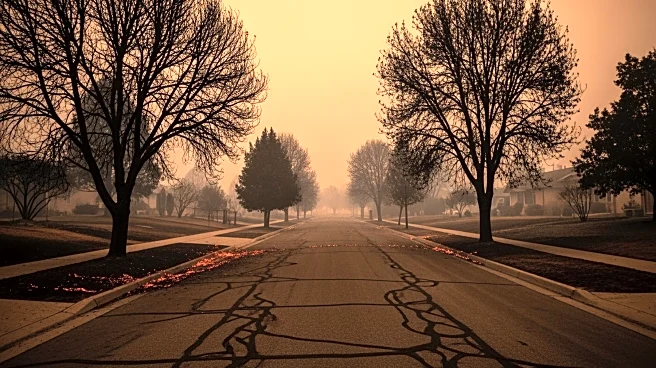What's Happening?
A significant fire in Oita, southwestern Japan, has resulted in the damage or destruction of at least 170 homes, according to the Oita prefectural disaster response team. The fire, which began during strong winds near a fishing port, spread rapidly, affecting
approximately 12 acres of land. Firefighters and army helicopters have been deployed to combat the blaze, which was not fully under control nearly 20 hours after it started. The Ground Self-Defense Force dispatched two UH1 army helicopters to assist in the firefighting efforts. One person has been killed, another injured, and more than 170 residents have been evacuated. The cause of the fire is currently under investigation.
Why It's Important?
The fire in Oita highlights the vulnerability of residential areas to natural disasters, particularly in regions prone to strong winds and other environmental factors. The damage to homes and the displacement of residents underscore the need for effective disaster response and preparedness strategies. The incident also raises concerns about the safety of coastal areas, which may be more susceptible to such events. The Japanese government, led by Prime Minister Sanae Takaichi, has pledged maximum support to those affected, emphasizing the importance of government intervention in disaster management.
What's Next?
Authorities are continuing to investigate the cause of the fire and how it spread so rapidly. Efforts to restore electricity to the affected homes are underway, with about 260 homes still without power. The government is expected to provide support to the displaced residents and assist in rebuilding efforts. The incident may prompt a review of fire safety measures and disaster preparedness protocols in the region.
Beyond the Headlines
The fire in Oita may lead to increased scrutiny of building regulations and safety standards in coastal areas. It also highlights the potential impact of climate-related factors, such as strong winds, on the frequency and severity of such disasters. The event could trigger discussions on the need for improved infrastructure and emergency response systems to better protect vulnerable communities.

















